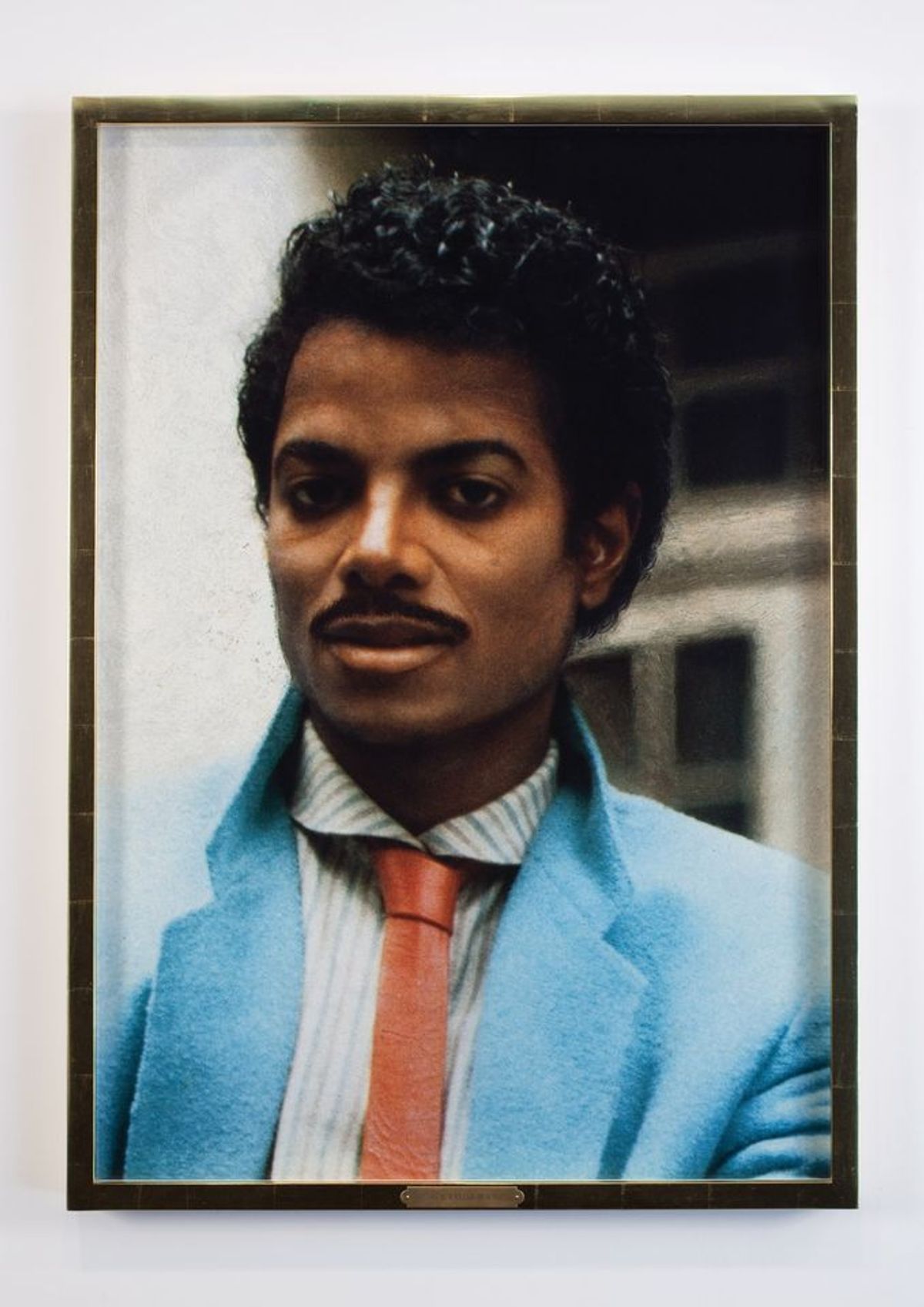The exhibition Michael Jackson: On the Wall is due to open at venues in Germany and Finland despite the furore over the HBO documentary Leaving Neverland, which received its premiere in the UK last night on Channel 4. In the film, two men—Wade Robson and James Safechuck—allege that Jackson sexually abused them as children.
The exhibition, which opened at the National Portrait Gallery in London last June and toured to Paris’s Grand Palais, travels to the Bundeskunsthalle in Bonn (22 March-14 July) and Espoo Museum of Modern Art (Emma) in southern Finland (21 August-26 January 2020).
Works by more than 40 artists inspired by Jackson—including Kehinde Wiley and Glenn Ligon—are included. The London show included Jordan Wolfson’s Neverland (2001), a video of footage taken from Jackson’s 1993 live broadcast from Neverland Ranch in which he vigorously denies child sex abuse allegations. In 2005, the late pop star was put on trial accused of child abuse but was cleared of all charges.
A spokesman at the Bundeskunsthalle says that the exhibition will open as planned late March. A statement says: “[We are] closely following the current controversial discussion surrounding the film documentary Leaving Neverland. The allegations are shocking, but the process [of verifying the victims’ claims] is not yet completed and has become much more difficult since the death of Michael Jackson [in 2009].”
Pilvi Kalhama, the director of Emma, says: "The exhibition Michael Jackson: On the Wall will be seen at the Espoo Museum of Modern Art… the exhibition presents contemporary art by established international artists who have been inspired by Michael Jackson. The works of art in the exhibition also examine the ambivalent sides of Jackson's character. As a museum, we want to be transparent and are willing to discuss even challenging themes in our society.” A spokesman adds that “the exhibition is basically the same. Some slight alterations have been made because some works couldn't tour, but nothing major.”
Michael Jackson’s estate is reportedly suing HBO for $100m over the documentary, saying that the two men interviewed in the documentary are “financially motivated”.


